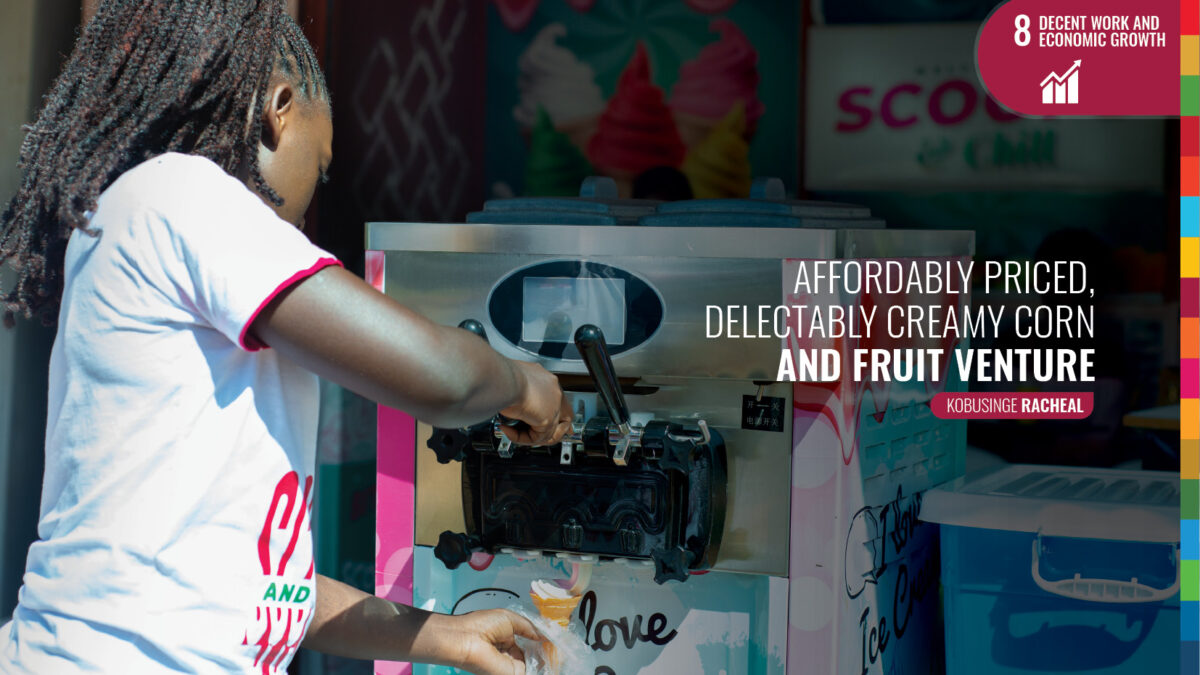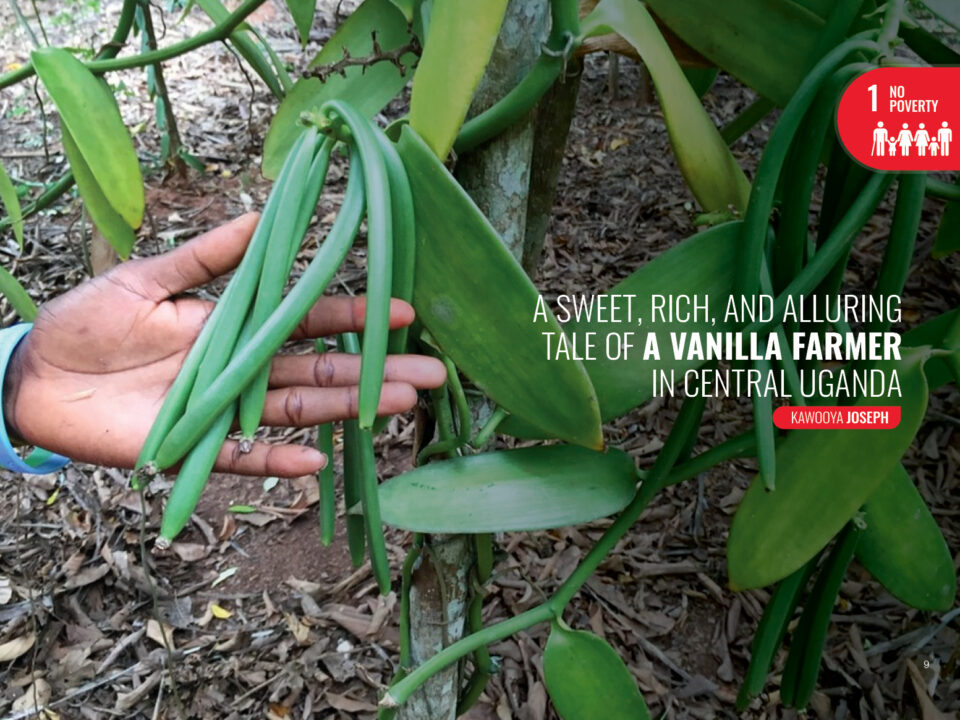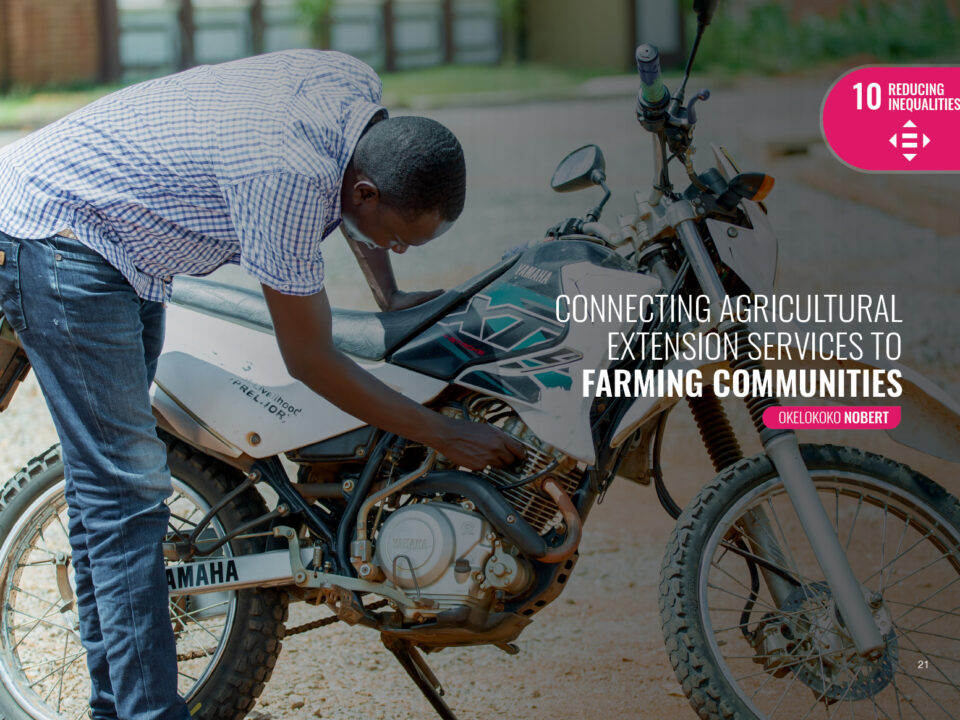Affordably Priced, Delectably Creamy Corn and Fruit Venture
As you walk from the city to Gulu University, you will notice a simple but well-curated sanctuary where you can seek refuge from the scorching sun that rises early in the morning. This is Kobusinge Racheal’s “Scoop and Chill” business.
Kobusinge, an Agri-preneur, former Gulu University student, and TAGDev program alumnus, turns raw milk into ice cream and fresh fruits into organic juice as part of adding value to perishable agricultural products. Both are high in vitamins and minerals. Scoop and Chill Cafe serves organic juice, ice cream, and snacks as accompaniments to its clients, who are mostly university students.
After realizing that farmers in the community were struggling with low sales and milk wastage, Kobusinge decided to venture into raw milk value-addition. She partnered with a local farmer in Unyama county, Gulu, from whom she purchases at least 15 liters of raw milk daily. This single mother will be eternally grateful because she previously struggled to sell her milk.
Kobusinge believes that adding value to the milk and selling it as the ice cream is more profitable than selling a cup of raw milk for 1,000 Ugandan shillings (less than a Dollar). She further explains that on a good day, 10 liters of milk with a cost implication of about 50,000 shillings (13$) can earn up to 130,000 shillings (34$), a skill set she acquired from various TAGDev training on Agricultural food processing.
Given the hot weather and the readily available market of university students, the ice cream business is very profitable in Gulu. She contends that her secret is in developing her distinct recipe that distinguishes her product from others in the same business. She complements the ice cream with juice for customers who do not consume milk products; juice, she explains, is not as profitable as the ice cream, but it is a great compliment to the business.
Kobusinge is pleased with her accomplishments thus far, even though the cafe has only been open for a little more than five months. She believes it has benefited the community by supporting local farmers and providing employment opportunities for three more young people who assist in the production process and serve customers. She has been able to teach others the fundamentals of ice-making while also supporting her younger brother to attain an education.
Giving back to the community gives her great satisfaction. “TADGev has changed my life since I came from the village; I will never go back,” Kobusinge declares firmly.
All of this is not without its difficulties and shortcomings. The most significant impediment is power outages, which disrupt ice cream production and juice preservation. As a result, purchasing a standby generator becomes increasingly important in the future.
She also finds it difficult to obtain some fruits because they are seasonal, such as passion fruits, which can cost up to 500 shillings per fruit, reducing her profit margin. Kobusinge obtains ice cream flavors and cones from Kampala, which raises her production costs because they must be transported by bus to Gulu.
Nonetheless, Kobusinge is focused on expanding to a standard cafeteria, one with all-around fast foods, as well as possibly several branches in Gulu, Kampala, and Fort Portal, where she is from. Her pearl of wisdom for the youths is to give business time, start small, and be patient. She observes that many young people abandon startups in favor of more traditional jobs, which is unfortunate because businesses provide greater financial benefits when properly managed.




